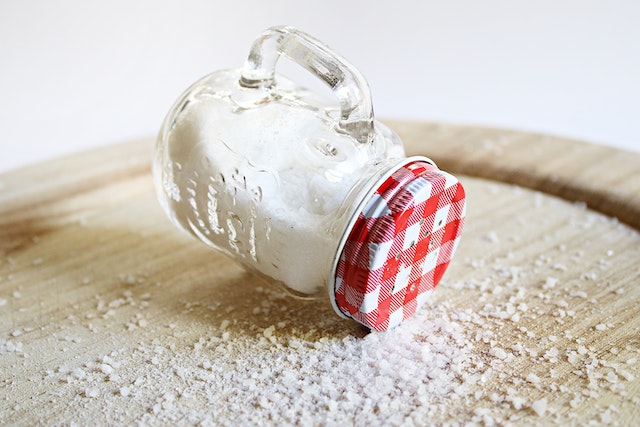Introduction: Struggling to shed those extra pounds despite your best efforts? Surprisingly, the culprit behind your weight loss plateau might be sitting right in your kitchen cabinet: salt. While often overlooked, excessive salt intake can have a significant impact on your weight loss journey. In this article, we will delve into the reasons why consuming too much salt could be the reason you’re not seeing the results you desire.
- Water Retention and Bloating: One of the primary ways salt sabotages weight loss is through water retention. Sodium, the main component of salt, has a knack for attracting water molecules and causing fluid buildup in the body. This can result in bloating and a temporary increase in weight on the scale. It is crucial to understand that this weight gain is not indicative of fat accumulation but rather excess fluid retention.
- Sluggish Metabolism: An excessive intake of salt can wreak havoc on your metabolism, hindering your weight loss efforts. Research suggests that a high-sodium diet may interfere with the body’s ability to efficiently convert stored fat into energy. This metabolic disruption can slow down your metabolic rate, making it harder to burn calories effectively, even when you are in a calorie deficit.
- Increased Appetite and Overeating: Salt has a sneaky way of stimulating your appetite and promoting overeating. Consuming a diet high in salt triggers the release of certain hormones that can make you feel hungrier and less satisfied after a meal. This can lead to increased calorie intake, derailing your weight loss progress and making it challenging to maintain a calorie deficit.
- Cravings for Unhealthy Foods: Have you noticed an intense desire for salty and unhealthy foods? Excessive salt intake can actually increase your cravings for such foods. Processed snacks, fast food, and other high-sodium options tend to be calorie-dense and lacking in nutritional value. Giving in to these cravings can throw your weight loss efforts off track and make it harder to adhere to a healthy eating plan.
- Fluid Balance and Inflammation: Salt plays a crucial role in maintaining fluid balance in the body. However, consuming too much salt can disrupt this delicate equilibrium and contribute to inflammation. Inflammation can hinder weight loss by affecting the body’s ability to burn fat efficiently. Moreover, fluid imbalances resulting from excessive salt intake can impact overall well-being and make weight loss more challenging.
Conclusion: If you’ve hit a weight loss plateau or are struggling to shed those extra pounds, consider evaluating your salt intake. Excessive salt consumption can lead to water retention, a sluggish metabolism, increased appetite, cravings for unhealthy foods, and fluid imbalances. By being mindful of your salt intake and opting for low-sodium alternatives, you can overcome this hidden obstacle and enhance your weight loss journey. Remember, sustainable weight loss involves a holistic approach that addresses various factors, including diet, exercise, and overall lifestyle choices.




